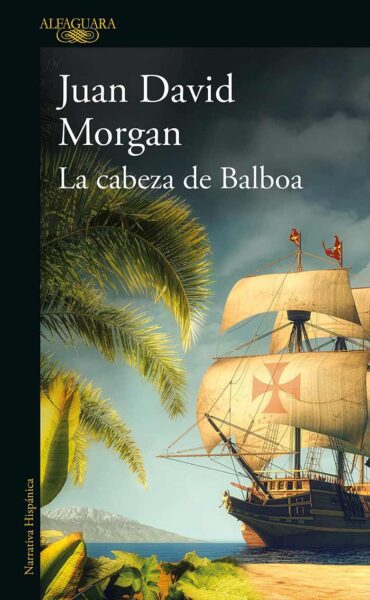From the writer who loves his country: Juan David Morgan
Juan David Morgan is one of those characters who, with his acute and sharp frankness, leaves a legacy through writing. […]
Juan David Morgan is one of those characters who, with his acute and sharp frankness, leaves a legacy through writing. With 12 works to his credit (one in the process of revision and editing), Morgan has no doubt that writing is his thing. A lawyer by profession trained in Panama and the United States, he tells El Faro about his experience as a writer and his desire to see a better country transformed by the utopian education to which all peoples aspire.
A history buff, he recalls a stranger who approached him in a park and, after asking him if he was Juan David Morgan, told him: “Never stop writing historical novels”. The message stuck, served to further consolidate him as a writer, and today he is convinced that his greatest contribution to society is to use the literary subgenre of the historical novel to cultivate love for our homeland and identity.

When did your love for writing begin?
As a teenager. I was 14 years old, my first girlfriend left me and I wrote a poem, bad that poem [smiles]. Besides, my house was full of books, my parents and my five siblings read, so we had no choice but to read. However, after my father’s death in 1986, I decided to tell his story and my mother’s story, and I wrote a story for my children and grandchildren. In the end, it became a novel because the writing didn’t have all the elements to stick to reality, and so I filled in [with fiction] the spaces that were missing. So it became a novel inspired by my parents’ lives, and I called it Fugitives of the Landscape. Precisely, I’m rewriting it for publication now that I know I write better, because I feel it’s my best story.
Most of your novels have historical connotations, such as the construction of the railroad and the Canal. Why did you choose this genre?
A couple of friends and I had a get-together every Friday lunchtime, and we decided to put [Philippe] Bunau-Varilla on trial. We called that historical trial The Verdict, which we later published and even made into a play.
Then, that historical trial made me do more research on the separation of Panama from Colombia, and I realized that I didn’t know Panama’s history well, even though I had been a good student. That motivated me to write so that Panamanians would know their history better; I thought that reading a historical novel would make things easier for them instead of going to history books.
After a while, I realized that I needed to write fiction as well, and I began to write suspense novels; I call them gray novels, because black novels are violent; mine are psychological, suspenseful. Among them, I highlight: El ocaso de los inocentes, Los susurros, La muerte de Daniel, and El silencio de Gaudí.
Is there any work of yours that criticizes our society?
Yes, La rebelión de los poetas. That is a novel that denounces the lack of culture in our country. I based it on a story I had written 20 years ago. I gave it a humorous tone that carries a criticism, but also a message about the importance of culture and education. And that’s what it’s all about: we have to educate ourselves. And to achieve success in education, you have to change the system, you have to take politics out of education.
The protagonists of education: teachers, professors, parents and students, are the ones who have to direct education through an autonomous educational authority, similar to the Panama Canal.
And how can the issue of education be managed?
I believe that education should be attached to the place where the teaching takes place. The education of students in Panama City is not the same as the education of children in Azuero. One of Panama’s biggest problems is the constant migration from the countryside to the city in search of opportunities.
The Canal is a magnet for the transit zone that attracts people and these are located in regions that do not have the conditions for human development. This is a product of the lack of decentralization of education that does not allow the individual to maintain and develop in his place of origin.
We must move towards a sustainable development, that the left and the right understand each other, that both workers and businessmen understand each other, without the intervention of the Government.
Panama Canal and society: How do you see this formula?
The Canal has been well regarded by the population. I have always believed that there is great respect from the community in general for the Canal and for those who manage it. I have great admiration for what the Canal has done, and that includes the expansion. Also, I think it is good that the USACE (U.S. Army Corps of Engineers) has been hired to recommend how the water resources should be used, and then to make the bidding process to see who will build the project. People will understand and respect that. The Canal has become an enviable and very, very efficient commercial enterprise.